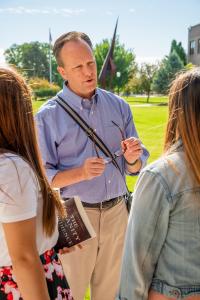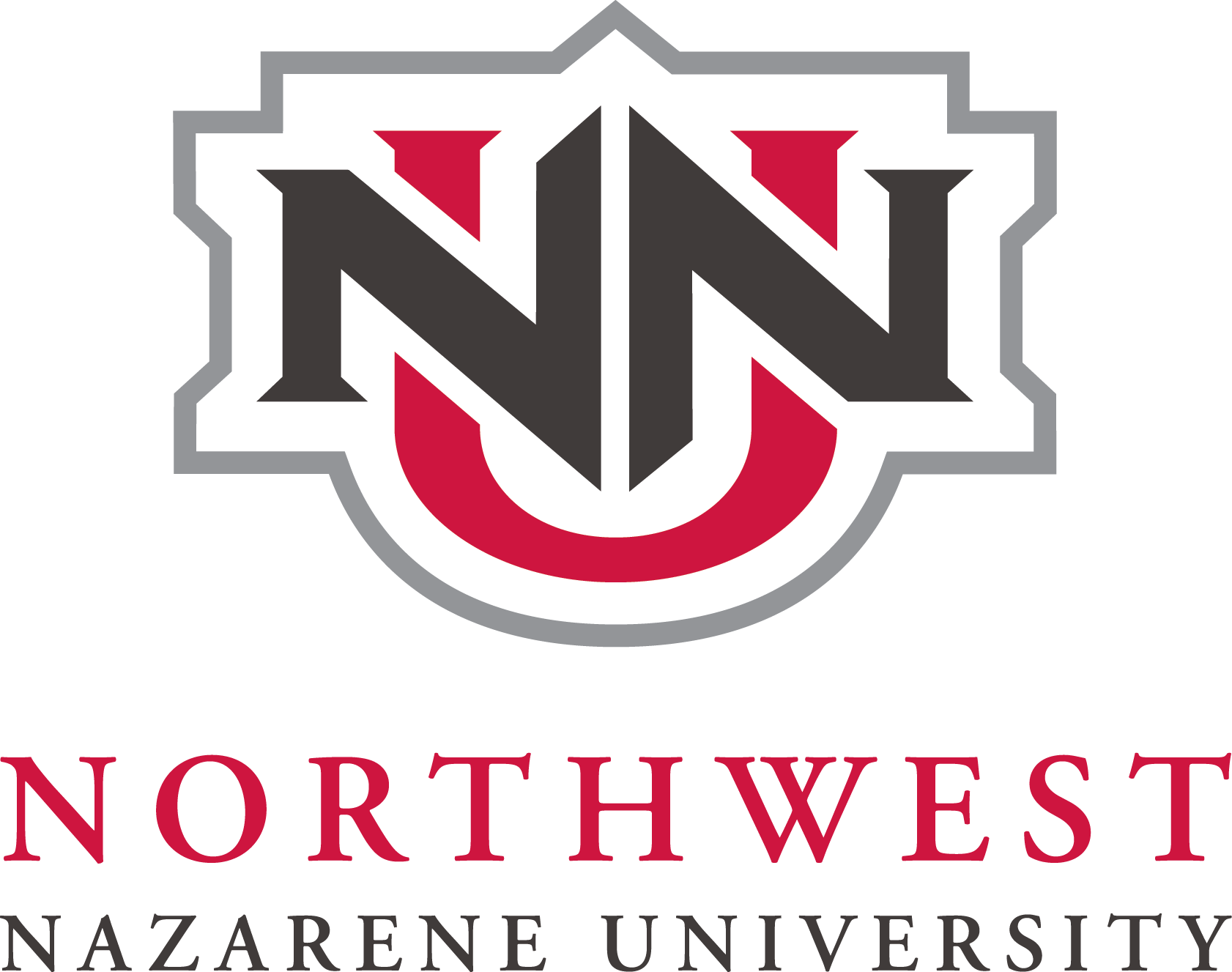Why a Theology Course Might Make All the Difference
 I’m in my 30th year of getting to teach Christian theology to general education students at NNU or other Christian universities. I love all my classes, but teaching Intro to Theology to a room full of diverse students from multiple majors and backgrounds is still my favorite course to teach. Why, when there are so many different classes and requirements to try to squeeze into a four-year education, are courses on theology, biblical literature and the Christian life so important?
I’m in my 30th year of getting to teach Christian theology to general education students at NNU or other Christian universities. I love all my classes, but teaching Intro to Theology to a room full of diverse students from multiple majors and backgrounds is still my favorite course to teach. Why, when there are so many different classes and requirements to try to squeeze into a four-year education, are courses on theology, biblical literature and the Christian life so important?
I start every new semester of theology with the same quote from the Christian ethicist Alasdair MacIntyre, out of his classic book After Virtue. MacIntyre writes, “I can only answer the question ‘What am I to do?’ if I can answer the prior question, ‘Of what story or stories do I find myself a part?’” That famous quote is meaningful to me for two reasons.
First, it recognizes that we understand and interpret our lives in storied ways. We can’t help it. How we answer big questions like – How did the world get here? What does it mean to be human? What does the good life look like? Does life have meaning? Where is history headed? – are answered by us in ideas that are shaped like stories. That doesn’t mean those stories are made up or self-created, but it does mean that we, by nature, put things in sequential and connected order the way the plot of a great story progresses.
The second implication of MacIntyre’s quote is that the stories we believe to be most true will shape the way we live. They can’t help but do that. Let me give you a couple of examples. In theology class, we often reflect on how the creation story in the Bible relates to the creation stories that were circulating in other cultures during the time of ancient Israel. What stories did people like the ancient Assyrians, Babylonians and Persians tell? Generally, I would lump their creation stories into a couple of categories. Some of their creation stories were about how the gods formed or made humans to be their slaves or workers. Others told stories about how the gods made humans to be warriors. It shouldn’t surprise us that cultures telling those origin stories also turned out to be both oppressive and violent.
The biblical creation story is very different. Genesis reveals that humans were not created to be God’s slaves or soldiers; rather, humans were created in God’s image to live in a relationship of holy love and mutual responsibility with God and with one another. Therefore, according to the Christian story, we are most human, not when we are fighting or oppressing the vulnerable, but when we are living lives of holy love toward the Creator, toward one another and toward the creation.
As another example, how people think the story ends also matters. If a person’s story is that the world began with a fortunate accident and will end with an unfortunate one, it is likely that they will live only for today and devote themselves to accumulating all the wealth and sensual experiences they can because you only live once; so eat, drink and be merry. If a person’s story is that the world is going to get darker and darker until Jesus can come and rescue his people out of the mess, then it is likely that this person will find a safe place to hide from the world and await the fireworks. But if a person’s story is that the Spirit of Christ is at work in the world redeeming all things until Christ returns to the world God loves and called “good,” the new Jerusalem descends from heaven to earth, and the new creation breaks in to heal the old, then there’s a good chance they will live courageously in the world for Christ bringing the divine light into dark places.
One last insight into MacIntyre’s quote. He recognizes that there are multiple stories not only in the world but perhaps even in ourselves, and those stories compete for our allegiance and devotion. Whether the students in a theology course recognize it or not, there are many different stories (idolatries) inviting them to give their life away. Here are just a few of the most popular stories: The wealth story tells us that whoever dies with the most toys wins, and a person’s worth is equal to the size of their bank account. The sensuality story bluffs us into believing that life is primarily found in forms of physical pleasure and that our worth is connected to how attractive others find us. The nation or culture story convinces us that our ethnic, familial or cultural identity is the place where our ultimate purpose is found. There is also what I call the “no-story” story. This is a sad and nihilistic story about how life has no meaning or purpose other than what a person chooses to create and then hopes others accept. I could name a dozen more.
So, back to the question, why should students in a university full of other important courses and subjects be required to wrestle with Scripture and theology? And why do I get so much joy out of teaching them those truths? Because ultimately, living a truthful story matters more than anything else. And the story of Jesus is the Way, the Truth and the Life. I also believe having the chance to tell that story thoughtfully, carefully and passionately in all its complexities and mysteries matters.
After opening the semester with the quote from MacIntyre, I tell students two things. First, your great temptation in life will be to try to live more than one story. You’ll try to combine Christ’s story with another. That won’t work for long. You can’t serve two masters. Second, you don’t get out of having a story. So, as you grow, mature and develop vocationally, if you choose not to live into the story Jesus offers, at least be honest about the story you have chosen.
What’s so special and unique about NNU is that we get the chance to tell the great and truthful story of God and invite people headed toward all kinds of careers and professions to discover how to live meaningfully and joyfully because they have come to trust the divine story of which they are a part.
Dr. Scott Daniels, Theology & Christian Ministries








